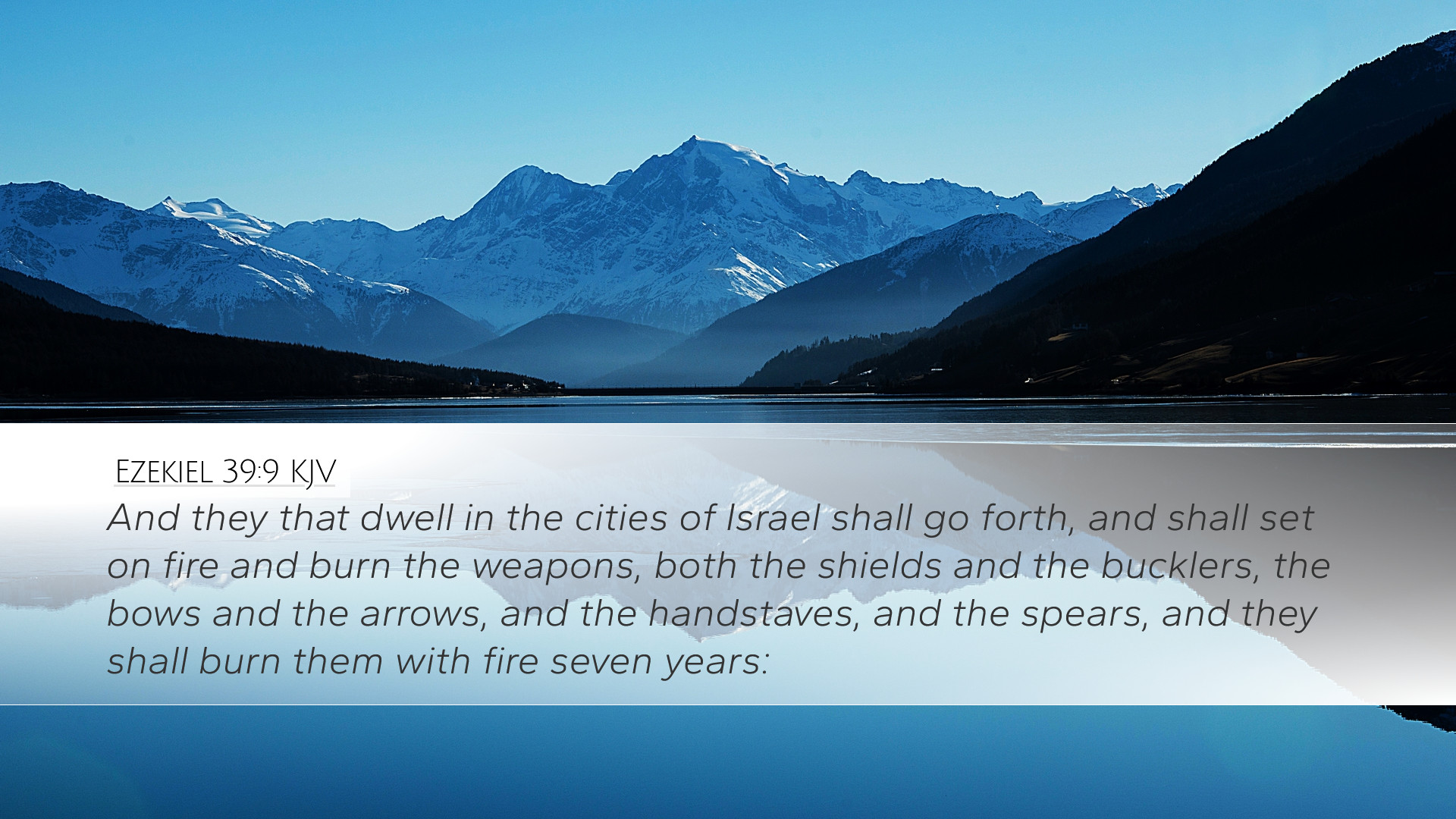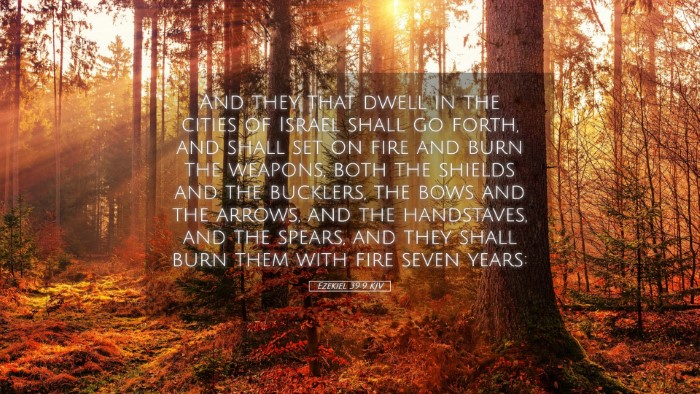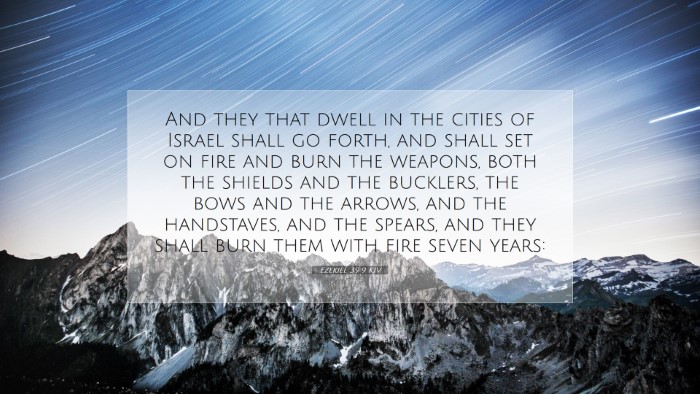Ezekiel 39:9 - Commentary Summary
Verse Context: Ezekiel 39:9 states, "Then those who dwell in the cities of Israel will go out and make fires of the weapons and burn them, shields and bucklers, bows and arrows, clubs and spears; and they will make fires of them for seven years." This verse speaks to the aftermath of God's judgment against Gog and Magog, depicting a scene of deliverance and restoration for Israel.
Historical Background
Matthew Henry: Henry emphasizes the prophetic vision's setting during a time of great turmoil and oppression faced by Israel. He notes that Ezekiel prophesies the ultimate victory of God’s people over their enemies, particularly focusing on the defeat of Gog, representing the powers opposed to God’s people.
Albert Barnes: Barnes highlights the historical context of Ezekiel's prophecies, suggesting that the themes resonate with Israel's experiences of captivity and restoration. He interprets Gog and Magog as symbolic of all forces that rise against God’s chosen people throughout history.
Adam Clarke: Clarke provides insight into the geographical and historical implications of the names Gog and Magog, linking them to specific nations historically hostile to Israel. He argues that this prophecy reflects not just a future hope but divine assurance against past and present enemies.
Theological Implications
Matthew Henry: Henry points out that the use of weapons for fuel signifies total victory and the conversion of former threats into means of blessing. This transformation embodies a deeper theological truth concerning God's ability to bring about good from evil circumstances.
Albert Barnes: According to Barnes, the prophesied burning of weapons indicates complete obliteration of opposition. He emphasizes that God’s deliverance is total, allowing Israel to enjoy peace and security for an extended period, symbolized by the seven years mentioned.
Adam Clarke: Clarke stresses the significance of fire as a purging agent. He interprets the burning of weapons not only as a sign of victory but also as an indication of a purified state of worship, where former oppressors’ tools become a source of domestic warmth and community strength.
Practical Applications
- Celebration of Deliverance: For pastors and church leaders, this verse can serve as a reminder of God’s faithfulness in delivering His people from oppression and adversity. It encourages congregations to celebrate God’s miraculous works in their lives.
- Transformational Power: The imagery of weapons turned to fire can inspire believers to reflect on how God can transform their struggles and challenges into tools for growth and community building.
- Hope for the Future: The promise of peace and absence of enemies for seven years serves as a hopeful assurance for believers facing current tribulations. It affirms that God is in control and will bring about lasting peace.
Conclusion
The commentary on Ezekiel 39:9 richly weaves together historical context, theological implications, and practical applications for contemporary believers. Matthew Henry, Albert Barnes, and Adam Clarke collectively highlight the profound hope encapsulated in this verse—a promise of victory, transformation, and divine peace for the people of God. As scholars, students, and theologians delve into this text, they are invited to consider not only the passage's immediate context but also its enduring relevance as a testament to God's sovereignty and redemptive power.


